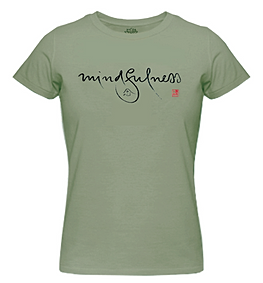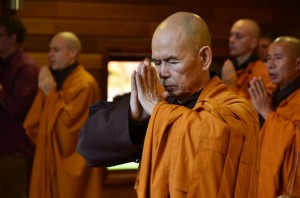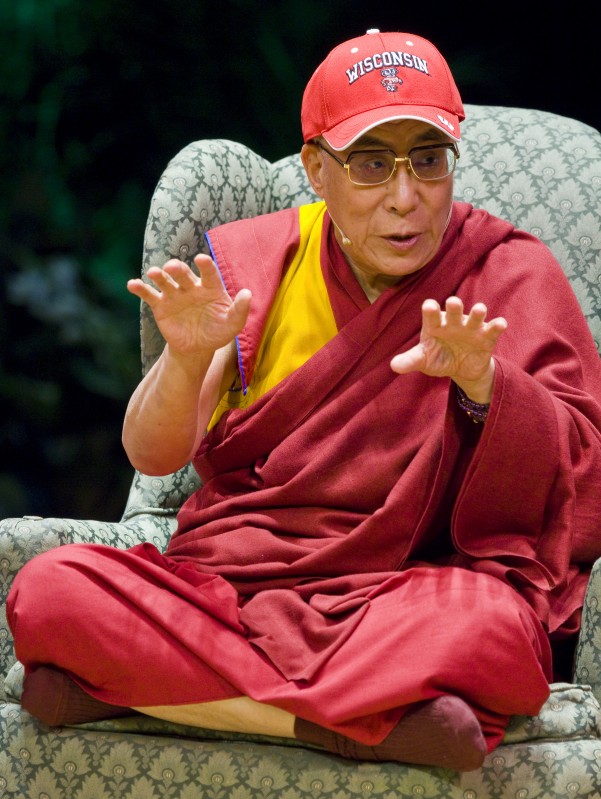I've often thought that if I were to get a word tattoo, it would be lines from the
Heart Sutra
Form is emptiness; emptiness also is form.
The sutra continues:
Form is not other than emptiness, emptiness is not other than form, but I don't think I'd invest the skin space in the second sentence
. (It's not pure repetition, though -- it says that form is not emptiness, but it's also not not-emptiness. And on.)
Why choose one of the most confounding set of words in all of Buddhism? It's the pith instruction: Don't solidify anything, not even emptiness. Hold space open for everything.
Which is not to say that this wasn't a head-scratcher at first. Emptiness is a conundrum that takes some exploration to understand. While it is empty of fixed definitions -- like a permanent self -- it is full of possibility. Everything happens in emptiness.
Thich Nhat Hahn has released a new translation of the Heart Sutra that he says corrects that misperception -- which has been going on for about 2,000 years, he says in
a letter of explanation.
Emptiness of self only means the emptiness of self, not the non-being of self, just as a balloon that is empty inside does not mean that the balloon does not exist. The same is true with the emptiness of dharma: it only means the emptiness of phenomena and not the non-existence of phenomena. It is like a flower that is made of only un-flower elements. The flower is empty of a separate existence, but that doesn't mean the flower is not there.
The Heart Sutra is a distillation of the much longer
Prajanaparamita Sutra, which lays out the ultimate truth of emptiness. It counters the extreme views of nihilism and eternalism, detailing the parts that make up our personalities -- the skandhas of form, feeling, perception, conceptualization, and consciousness -- and says they don't exist.
Thay says that's the source of the misunderstanding.
It removes all phenomena from the category 'being' and places them into the category of 'non-being' ... Yet the true nature of all phenomena is the nature of no being nor non-being, no birth and no death.
Instead of: "In emptiness there is no form, no feeling, no perception, no formation, no consciousness ..." Thay writes, "That is why in emptiness, body, feelings, perceptions, mental formations, and consciousness are not separate self-entities. Even insight and attainment do not exist as separate self-entities."
The Heart Sutra, with its apparent negation of previous teachings, caused great consternation when it was spoken and ever since. The word "emptiness" confuses students who equate it with "voidness," a black hole of nothingness, when really it is the light that enables us to see -- sourceless, luminous, all-pervading wisdom. Prajnaparamita.
He calls the chant "The Insight that Brings Us to the Other Shores," in reference to the chanted mantra. See if this resonates with you.
Avalokiteshvara
while practicing deeply with
the Insight that Brings Us to the Other Shore,
suddenly discovered that
all of the five Skandhas are equally empty,
and with this realisation
he overcame all Ill-being.
“Listen Sariputra,
this Body itself is Emptiness
and Emptiness itself is this Body.
This Body is not other than Emptiness
and Emptiness is not other than this Body.
The same is true of Feelings,
Perceptions, Mental Formations,
and Consciousness.
“Listen Sariputra,
all phenomena bear the mark of Emptiness;
their true nature is the nature of
no Birth no Death,
no Being no Non-being,
no Defilement no Immaculacy,
no Increasing no Decreasing.
“That is why in Emptiness,
Body, Feelings, Perceptions,
Mental Formations and Consciousness
are not separate self entities.
The Eighteen Realms of Phenomena
which are the six Sense Organs,
the six Sense Objects,
and the six Consciousnesses
are also not separate self entities.
The Twelve Links of Interdependent Arising
and their Extinction
are also not separate self entities.
Ill-being, the Causes of Ill-being,
the End of Ill-being, the Path,
insight and attainment,
are also not separate self entities.
Whoever can see this
no longer needs anything to attain.
Bodhisattvas who practice
the Insight that Brings Us to the Other Shore
see no more obstacles in their mind,
and because there
are no more obstacles in their mind,
they can overcome all fear,
destroy all wrong perceptions
and realize Perfect Nirvana.
“All Buddhas in the past, present and future
by practicing
the Insight that Brings Us to the Other Shore
are all capable of attaining
Authentic and Perfect Enlightenment.
“Therefore Sariputra,
it should be known that
the Insight that Brings Us to the Other Shore
is a Great Mantra,
the most illuminating mantra,
the highest mantra,
a mantra beyond compare,
the True Wisdom that has the power
to put an end to all kinds of suffering.
Therefore let us proclaim
a mantra to praise
the Insight that Brings Us to the Other Shore.
Gate, Gate, Paragate, Parasamgate, Bodhi Svaha!
Gate, Gate, Paragate, Parasamgate, Bodhi Svaha!
Gate, Gate, Paragate, Parasamgate, Bodhi Svaha!”


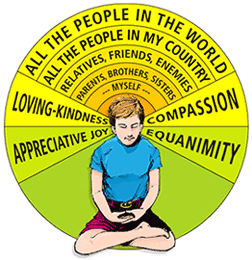






 This might seems a bit disengenuous, crass (
This might seems a bit disengenuous, crass (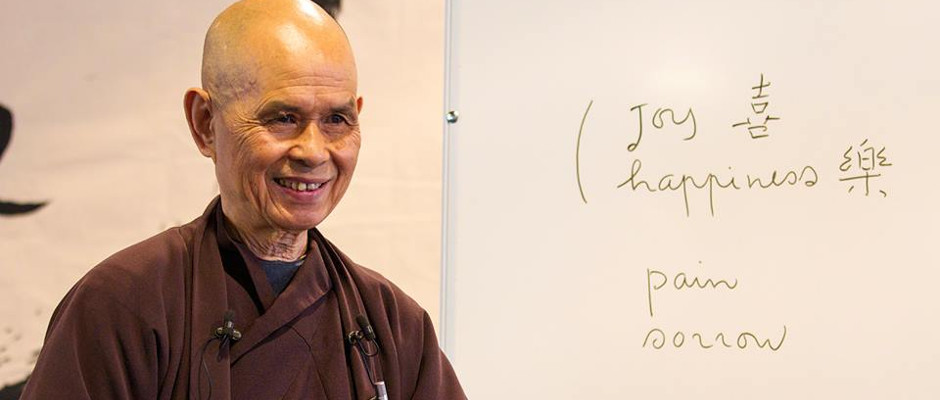




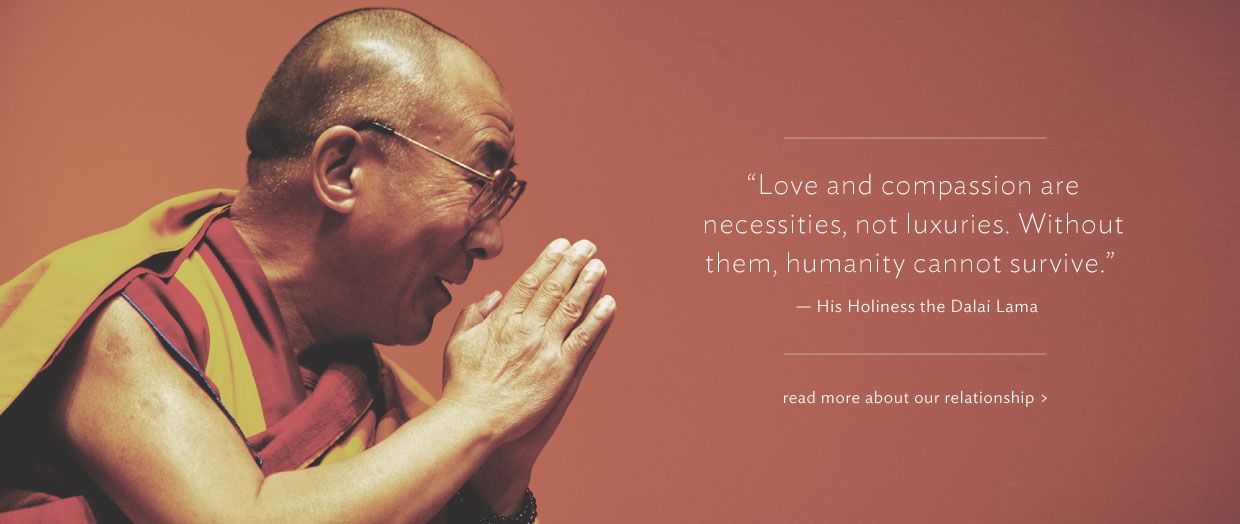 The center, a secular, non-political, not-for-profit organization, was established in 2005,
The center, a secular, non-political, not-for-profit organization, was established in 2005, 